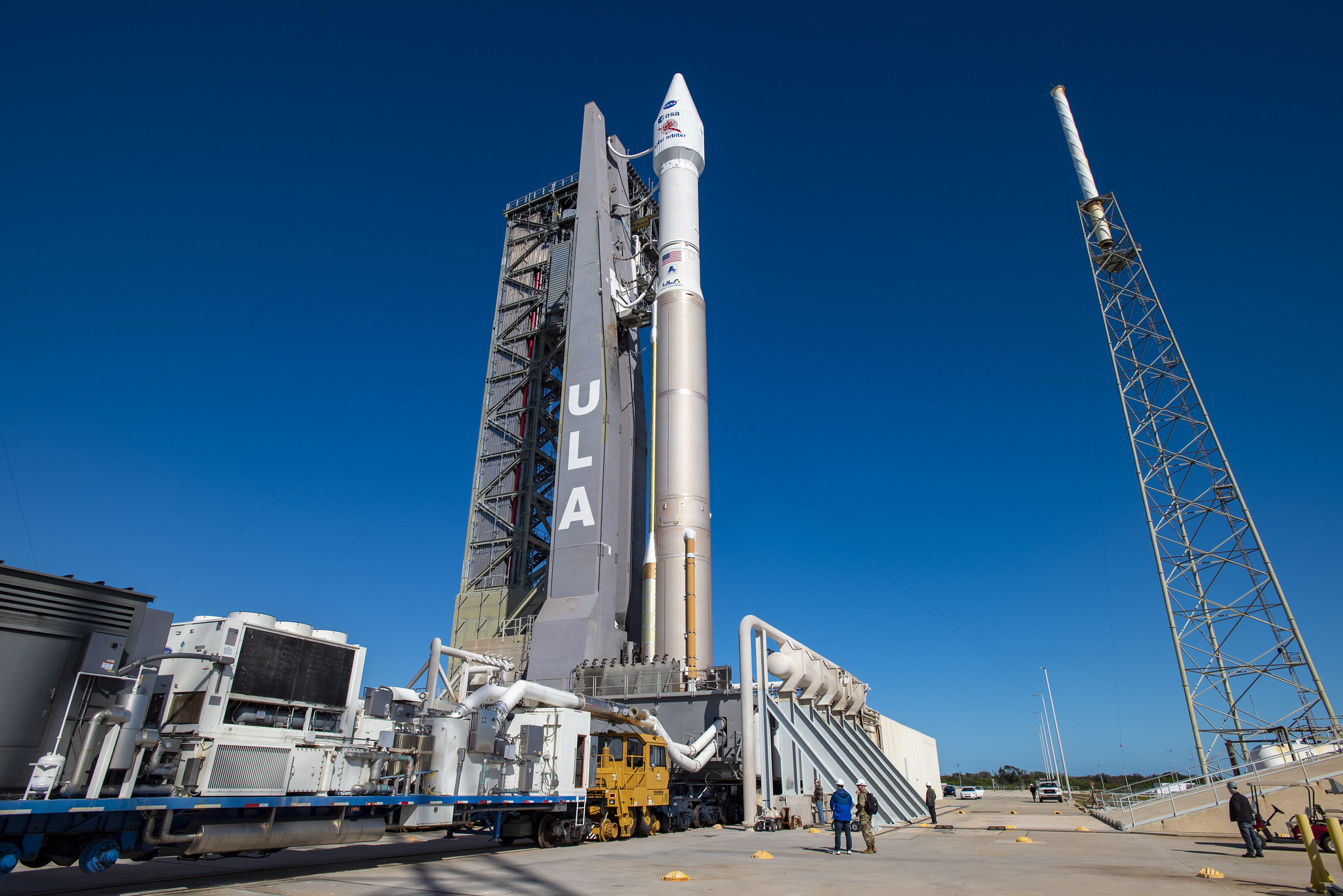Space double-header tonight! You can watch a Cygnus cargo ship and Solar Orbiter launch live online
The first liftoff is at 5:39 p.m. EST (2239 GMT).
Breaking space news, the latest updates on rocket launches, skywatching events and more!
You are now subscribed
Your newsletter sign-up was successful
Want to add more newsletters?

Delivered daily
Daily Newsletter
Breaking space news, the latest updates on rocket launches, skywatching events and more!

Once a month
Watch This Space
Sign up to our monthly entertainment newsletter to keep up with all our coverage of the latest sci-fi and space movies, tv shows, games and books.

Once a week
Night Sky This Week
Discover this week's must-see night sky events, moon phases, and stunning astrophotos. Sign up for our skywatching newsletter and explore the universe with us!

Twice a month
Strange New Words
Space.com's Sci-Fi Reader's Club. Read a sci-fi short story every month and join a virtual community of fellow science fiction fans!
Update for 5:45 p.m. ET: NASA has scrubbed the launch of Northrop Grumman's Cygnus NG-13 mission to the International Space Station. A new launch window has not yet been announced.
WALLOPS ISLAND, Va. — There's a space double feature in store for rocket fans today, with two launches to some very different places off Earth. And yes, you'll be able to watch it all live online.
The action, which NASA has dubbed its "Big Weekend," begins at 5:39 p.m. EST (2239 GMT) with the launch of a Northrop Grumman Antares rocket carrying a commercial Cygnus cargo ship on a delivery mission for NASA. It will lift off from the Mid-Atlantic Regional Spaceport here at NASA's Wallops Flight Facility carrying more than 7,500 lbs. (3,401 kilograms) of supplies to the International Space Station.
Less than six hours later, at 11:03 p.m. EST (0403 GMT Feb. 10), a United Launch Alliance Atlas V rocket will launch the Solar Orbiter — a joint mission by NASA and the European Space Agency — from the Cape Canaveral Air Force Station in Florida. That mission will send a powerful space probe to orbit the sun's poles to understand the origins of space weather that affects the entire solar system.
Related: Tonight's sunset rocket launch may be visible along US East Coast
You can watch both launches live here and on Space.com's homepage, courtesy of NASA TV. The Antares launch webcast will begin at 5 p.m. EST (2200 GMT) on NASA TV, though Wallops officials will provide live audio and video via the center's Ustream page beginning at 12:30 p.m. EST (1730 GMT). There's also a chance the launch may be visible along a wide swath of the U.S. East Coast, weather permitting.
The Solar Orbiter launch webcast will begin later at 10:30 p.m. EST (0330 GMT Feb. 10) and show views through the launch.
Breaking space news, the latest updates on rocket launches, skywatching events and more!
"With two launches and a major address by the administrator, NASA has a lot of news coming," the agency wrote in an update. NASA administrator Jim Bridenstine will host a "State of NASA" address on Monday (Feb. 10) when the 2021 NASA budget request is announced.
Today's rocket launch double-header is a fluke of launch scheduling. In fact, it wasn't supposed to happen at all.
In photos: The ESA-NASA Solar Orbiter mission to explore the sun's poles
The Solar Orbiter was originally scheduled to launch on Feb. 5, but an issue with its Atlas V rocket prompted a launch delay. The mission was first pushed to Feb. 7, then ultimately to Feb. 9, while Atlas V engineers worked out the issue.
Aside from NASA's role in both missions, the two launches do not share any overlapping assets, agency officials have said.
"With this launch, we do not have any conflicts," Jeff Reddish, NASA's Wallops launch range project manager for Antares, told reporters Saturday.
- Cygnus cargo ship leaves International Space Station, begins new mission in orbit
- Antares rocket launches Cygnus cargo ship on marathon mission for NASA
- This NASA experiment shows promise for farm-fresh foods in space
Email Tariq Malik at tmalik@space.com or follow him @tariqjmalik. Follow us @Spacedotcom, Facebook and Instagram.


Tariq is the award-winning Editor-in-Chief of Space.com and joined the team in 2001. He covers human spaceflight, as well as skywatching and entertainment. He became Space.com's Editor-in-Chief in 2019. Before joining Space.com, Tariq was a staff reporter for The Los Angeles Times covering education and city beats in La Habra, Fullerton and Huntington Beach. He's a recipient of the 2022 Harry Kolcum Award for excellence in space reporting and the 2025 Space Pioneer Award from the National Space Society. He is an Eagle Scout and Space Camp alum with journalism degrees from the USC and NYU. You can find Tariq at Space.com and as the co-host to the This Week In Space podcast on the TWiT network. To see his latest project, you can follow Tariq on Twitter @tariqjmalik.

